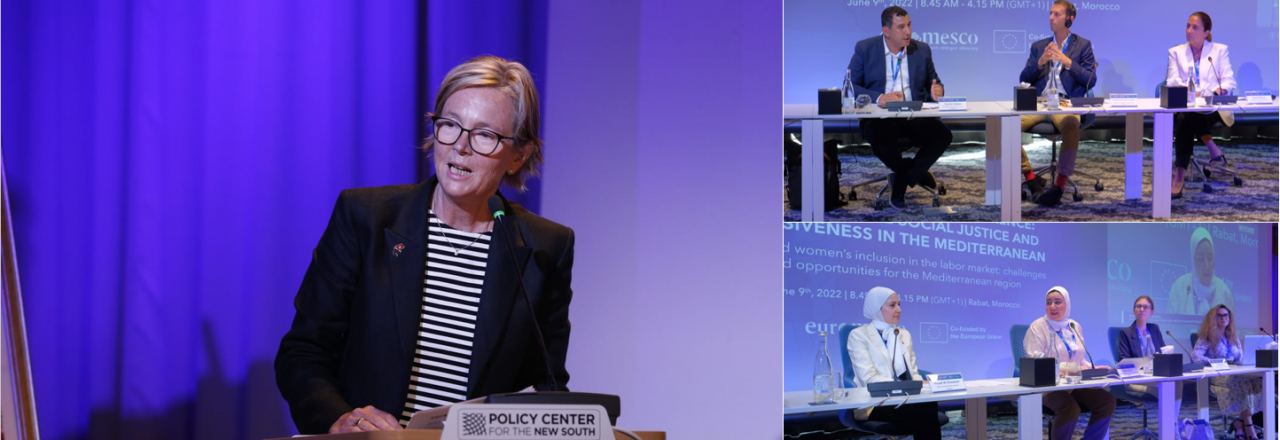
Report
AC 22 | Country Event Morocco – Youth & Women’s Inclusion in the Labour Market: Challenges and Opportunities for the Mediterranean Region
Abstract
The inclusion of young people and women is a major concern in several Mediterranean countries, particularly in the South and South–East. The labour markets of the countries on this shore share a number of features that exacerbate the difficulties of social and, above all, professional integration. The Morocco Country Event was an opportunity to discuss ways to improve the inclusion of youth and women in Morocco and in the broader Mediterranean region.
The plenary sessions aimed at shedding light on the causes of the low inclusion of youth and women in the labour market, defining priority areas of action, and putting forward short-, medium- and long-term solutions to improve the situation of women and young people, in particular youths deprived of education and training (NEET). Among the challenges facing youth inclusion identified during the sessions, experts pointed to the structure of the economy and its failure to provide decent jobs, which is the main driver of brain-drain. Access to information about relevant opportunities, inadequate education systems and skills recognition were other challenges to be addressed.
The involvement of the private sector is central; tripartite dialogue between employers, employees and government officials can open new avenues to support innovation and entrepreneurship and unleash the job creation potential of digital technology and health sectors or the green and social economy, allowing young people to use their talents for the benefit of society.
The green and digital economies also offer opportunity for women’s inclusion, however, when addressing gender equality in the labour market, data highlights the need for gender-specific approaches to overcome the economic, legislative, cultural, and practical barriers which hinder women’s economic participation on equal footing. In the MENA region, women present a low inclusion rate, a high degree of informality, and a lack of coverage by social protection systems. Experts agreed that the current economic model is marked by inequalities and calls for a renewed social contract, with a feminist perspective that recognizes the unpaid work disproportionately borne by women and guarantees equal pay, more flexible and safe work environments, secure transportation, and childcare facilities. Moreover, men and civil society organisations were recognized as important actors in dissolving intrahousehold barriers and fostering women’s active participation in society.
The event provided a platform to examine the labour opportunities of the green and digital transitions through the working sessions dedicated to the presentation of EuroMeSCo Papers on incubating green entrepreneurs and on drop-shipping and ecommerce in Morocco.
This was followed by the presentation of some of the findings of the EuroMeSCo Policy Study on Social protection in the Mediterranean region: challenges and opportunities and an open debate on the status and prospects of the social protection system in Morocco.
The event was co-organised by the European Institute of the Mediterranean (IEMed) and the Policy Center for the New South (PCNS) in the framework of the Euro-MeSCo: Connecting the Dots, a project co-funded by the European Commission’s Directorate-General for Neighbourhood and Enlargement Negotiations, Regional Programmes Neighbourhood South Unit (DG NEAR B2) and the IEMed that aims to connect the dots between diverse stakeholders – think tanks, experts, civil society, the private sector, academia – as well as between the EU, its Southern Neighbours and the wider region.
Download the full report.


